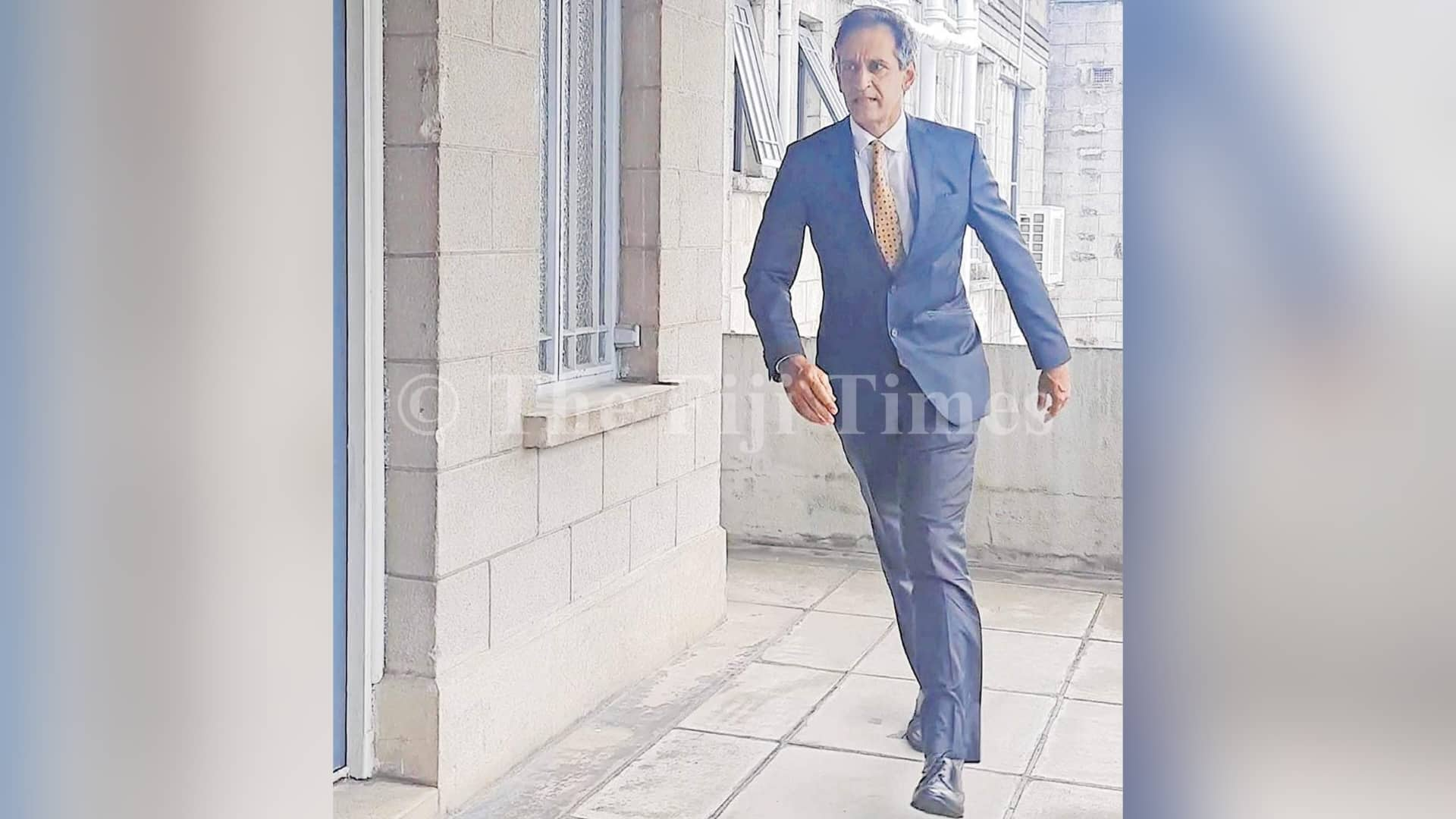Only a “kangaroo court” would deny an accused person the right to challenge evidence brought against him, the High Court heard yesterday in the contempt of court case brought against Suva lawyer Richard Naidu.
Lawyer Jon Apted said this during the hearing of Mr Naidu’s application to cross-examine Attorney-General Aiyaz Sayed-Khaiyum on the affidavit he has sworn in the case, which has been set down for hearing on November 10.
Mr Apted said the basis of Mr Naidu’s application was the “sacred” Constitution of Fiji.
He said the Constitution contained certain fundamental and inalienable rights, “as so proudly stated by the Government”, and Mr Naidu came to court seeking to exercise the very rights guaranteed to him by the A-G’s Government.
He said Mr Naidu was charged with the offence of contempt of court, for scandalising the court in a Facebook post he is alleged to have made.
Mr Apted pointed out that on September 8, the court had required Mr Naidu to enter a plea on the charge – a process which applies only to offences which are criminal in nature.
Mr Apted said Section 15 of the Constitution guarantees everyone charged with an offence the right to a fair trial.
He said further to this, Section 14 gave to every accused person the right to challenge evidence presented against them.
Mr Apted said that Section 6 of the Constitution bound all branches of government – including the judiciary, and all public office holders – to “respect, protect, promote and fulfill” the rights and freedoms recognised in the Constitution.
When asked by Justice Nanayakkara whether a witness, or someone who swore an affidavit, could be compelled to attend court and subject themselves to cross-examination, Mr Apted said the court was empowered to do so under the High Court Rules.
“The power exists under Order 38 to compel him, to order him appear, failing which he is either subject to contempt proceedings himself or his affidavit evidence cannot be relied because it has not been subject to challenge.
“If the evidence cannot be challenged, that would be a kangaroo court.”
Mr Apted said that the Attorney-General was like any other witness in court proceedings.
He was “not immune” from the same rules as everyone else.
Towards the end of the hearing, Mr Apted told Justice Nanayakkara that it was important that he be heard on the matter of what Mr Sayed-Khaiyum had said about other judges and magistrates.
However, Justice Nanayakkara said that these were not matters to be raised now.
Justice Nanayakkara said he would issue a ruling on the application on October 28.
Gul Fatima appeared for Mr Sayed-Khaiyum.

